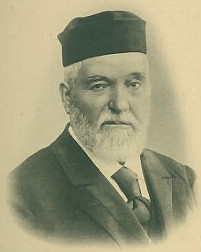The Producer Who Discovered Janis Joplin
Abraham Shadrinsky (1920-1985) was born and raised in Brooklyn, New York. His parents were early Bolsheviks that were actively fighting the Czar, and his father was exiled before the Russian Revolution. Young Abee Shadrinsky soon became “Bobby Shad”. His passion was music and especially the popular jazz of the time. In the 1940s, when the music producers’ union went on strike, a totally inexperienced Shad took the opportunity to go to the Savoy Label and offered to produce some jazz. He spent much of the next forty years in the recording studio, producing over 800 albums. He founded the great Emercy jazz label for Mercury Records, as well as Sitting In, Time, Brent, and Mainstream Records. He recorded many of the jazz legends and was personally responsible for developing the careers of greats like Quincy Jones, Sarah Vaughan, Dinah Washington, and Clifford Brown. He recorded pop artists, too, including Patti Page, the Platters, and Vic Damone. Shad was an incredibly creative man who was able to foresee many of the trends in music, such as early stereo, high fidelity, avant-garde, and acid rock. In the sixties, it was Shad who first discovered Ted Nugent and Janis Joplin, recording and producing her first album with the Big Brother band. Joplin went on to become one of the top-selling musicians in American history, and was ranked among the 100 Greatest Artists of All Time by Rolling Stone. Despite the great success, Shad lived modestly and remained true to his love of music, devoting most of his career and financial resources to the world of jazz. Having grown up in an atheistic home, he was not religious. Nonetheless, he was a real Jew at heart and was deeply in dialogue with God, especially regarding the Holocaust. He would often recount how special the Jewish people were and, because he was a pilot and had a private twin engine plane, he even assisted in smuggling arms for Israel at one point! Altogether, Shad recorded thousands of songs, including some of the greatest hits of the 20th century (listen to some of his music here). He is the father of Hollywood screenwriter Samantha Shad, and grandfather of author and professor Robert Apatow, and comedy filmmaker Judd Apatow.*
Words of the Week
People think loving one’s fellow means to give him a pat on the back. Loving one’s fellow means that if a Jew on the other side of the world has a problem, you feel it.
– Rabbi Yisroel Friedman, the Ruzhiner Rebbe (1796-1850)
*The above Jew of the Week was a guest submission by Robert (Avraham) Apatow, about his grandfather Bob Shad.


